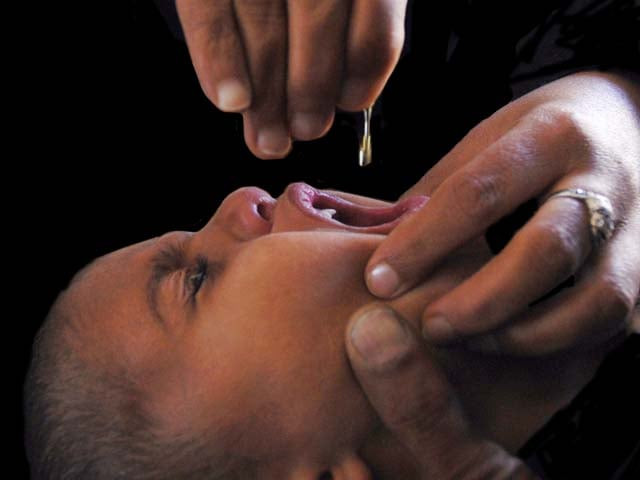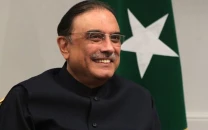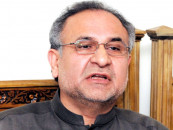Parent refusals for polio drops decline
Still 170,000 kids were deprived of inoculation because of negative response.

Still 170,000 kids were deprived of inoculation because of negative response. PHOTO: FILE
Almost 172,262 of targeted children were deprived of the oral polio vaccine during polio campaigns owing to refusal by parents. The figure makes up 0.5% of the target population.
Religious beliefs and lack of awareness are reported as the key reasons for declining children’s vaccination.
This revelation was made at a presentation by Dr Shamsher Khan from Pakistan Polio Programme at a meeting hosted by Pildat, prime minister’s polio cell and international polio eradication organisations including the World Health Organisation (WHO) and United Nations International Children’s Emergency Fund.
Though journalists were barred from covering the meeting, a participant of the meeting told The Express Tribune that 0.5% of the total target population of the country was refusing the oral polio vaccine – the lowest figure in the country’s history.
The prime minister’s polio cell, through a press release issued in October claimed that the number of refusals by parents had gone down to the lowest ever, with 47,000 refusals being recorded during the National Polio Campaign in October. In April, the WHO claimed that almost 70,000 refusals were recorded.
A parliamentarian representing the National Party from Balochistan informed The Express Tribune that apart from 172,262 refusals, 373,000 children were missed during polio rounds whereas 250,000 children are inaccessible only due to the Taliban ban in North and South Waziristan. “If we add the three different figures shared with us by the experts, we are talking about 0.8 million innocent children missing inoculation during every campaign in the country,” he remarked.

DESIGN: AMNA IQBAL
According to him, another shocking information shared with the parliamentarians by the officials stated that the polio virus had been restricted only to three transmission zones that included the country’s largest city Karachi, Central Khyber-Pukhtunkhwah Province, Federally Administered Tribal Area (FATA) and central parts of Balochistan that included the most populous districts of Qilla Abdullah, Pishin and Quetta. “One fails to understand, how can you term restricting the virus to over half of the country as a success, while the number of cases grow every month.” questioned the parliamentarian.
The parliamentarians were of the view that critical issues that have resulted in serious problems for the polio drive should be addressed. “We were disappointed to see that the officers present at the venue were not willing to talk about the critical issue of Shakeel Afridi and CIA that has caused irreparable damage to the polio drive in the country,” said a parliamentarian.
Some attendees said that the meeting told them nothing that was not previously known to them. “Not a single minute was spent on ways and means to ponder and to find a solution to the existing problems of the polio drive,” said the parliamentarian.
Published in The Express Tribune, July 16th, 2013.




1724319076-0/Untitled-design-(5)1724319076-0-208x130.webp)














COMMENTS
Comments are moderated and generally will be posted if they are on-topic and not abusive.
For more information, please see our Comments FAQ